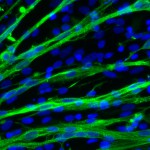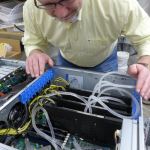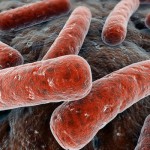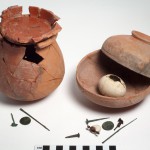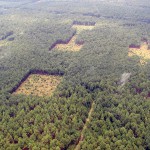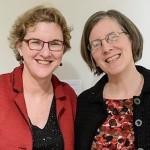Category Science & Technology
‘Stem cell tourism’ takes advantage of patients, says law professor
Desperate patients are easy prey for unscrupulous clinics offering untested and risky stem cell treatments, says law and bioethics Professor Alta Charo of the University of Wisconsin–Madison, who is studying "stem cell tourism."
Researchers discover new way to make muscle cells from human stem cells
As stem cells continue their gradual transition from the lab to the clinic, a research group at the University of Wisconsin–Madison has discovered a new way to make large concentrations of skeletal muscle cells and muscle progenitors from human stem cells.
New Milky Way portrait to be on Town Center media wall
The dramatic new infrared picture of the plane of our galaxy will be viewable for the next week on the large media wall in the Town Center of the Wisconsin Institutes for Discovery on the UW–Madison campus.
Startup focuses on reliable, efficient cooling for computer servers
In a dark, windy room on the top floor of Engineering Hall on the University of Wisconsin–Madison campus, racks of computers are processing information for a college that relies, like all technical fields, on massive computing power. The noise comes from multiple fans located inside each computer case and from the large air conditioner that drives currents through the room to remove waste heat from the processors.
In the lab, scientists coax E. coli to resist radiation damage
Capitalizing on the ability of an organism to evolve in response to punishment from a hostile environment, scientists have coaxed the model bacterium Escherichia coli to dramatically resist ionizing radiation and, in the process, reveal the genetic mechanisms that make the feat possible.
Study suggests potential association between soy formula and seizures in children with autism
A University of Wisconsin–Madison researcher has detected a higher rate of seizures among children with autism who were fed infant formula containing soy protein rather than milk protein.
Small scale, large potential: An expert weighs in on the future of microfluidics
More than a decade ago, David Beebe wrote that the field of microfluidics had the potential to significantly change modern biology. Now Beebe, an expert in the field, has written a high-level perspective on the state of microfluidics for the journal Nature.
Stem cell advance yields mature heart muscle cells
A team of University of Wisconsin–Madison researchers has induced human embryonic stem cells (hESC) to differentiate toward pure-population, mature heart muscle cells, or cardiomyocytes.
Sardis dig yields enigmatic trove: ritual egg in a pot
Sardis has given up another treasure in the form of two enigmatic ritual deposits, which are proving more difficult to fathom than the coins for which the city was famous.
Seed dispersal gets a test in carved-out ‘habitat corridors’
Field ecologists go to great lengths to get data: radio collars and automatic video cameras are only two of their creative techniques for documenting the natural world. So when a group of ecologists set out to see how wind moves seeds through isolated patches of habitat carved into a longleaf pine plantation in South Carolina, they twisted colored yarn to create mock seeds that would drift with the wind much like native seeds.
New, inexpensive production materials boost promise of hydrogen fuel
Generating electricity is not the only way to turn sunlight into energy we can use on demand. The sun can also drive reactions to create chemical fuels, such as hydrogen, that can in turn power cars, trucks and trains.
‘Cabinet of curiosities’ captures nature through work of artists and scientists
Of all the places Sierra Swenson expected to end up during her first semester at college, precious few were lined with jars full of preserved reptiles.
Vibration energy the secret to self-powered electronics
A multi-university team of engineers has developed what could be a promising solution for charging smartphone batteries on the go - without the need for an electrical cord.
Author, journalist Williams named Science Writer in Residence
Florence Williams, a prolific, award-winning author and science journalist, has been named the spring 2014 Science Writer in Residence for the University of Wisconsin–Madison.
The next dimension: 3D color printer wins innovation competition
Spectrom, an attachment for 3D printers that will allow users to incorporate seamless, on-demand color into the 3D printing process, won both the $10,000 Schoofs Prize for Creativity and the $2,500 Tong Prototype Prize at the 20th annual Innovation Days competition.
Experienced executive LaBelle to lead Office of Corporate Relations
Susan LaBelle, a veteran private sector executive and economic development leader who has taught in the UW–Madison master's in biotechnology program, has been selected to head the university's Office of Corporate Relations (OCR).
For athletes, Beyond the Game opens doors to science
Badger football player Melvin Gordon knows something about testing the laws of physics. On a football Saturday, Gordon, a star running back, can be seen squeezing through an impossibly small hole for a first down, or launching himself into the end zone with a gravity-defying leap.


